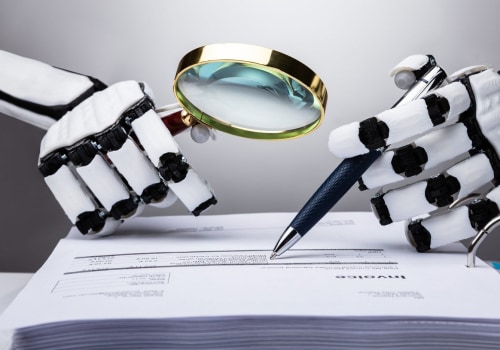Automated customer service is a type of support provided by automated technology, such as chatbots powered by artificial intelligence, not by humans. This type of relationship combines a more sophisticated form of customer self-service with automated processes to provide personalized, omnichannel customer service on a large scale. Automated customer service works best when customers need answers to simple, recurring questions, status updates, or help finding a specific resource. Companies achieve automated customer service through self-service resources, proactive messaging, or simulated chat conversations.
Customers can access personalized services through personal online profiles. Automating customer service through customer service software can help your company save overheads by eliminating the need for customer service staff working around the clock around the world. Chatbots are tools that use artificial intelligence (AI) to respond to customer inquiries when there is no live agent available. They are designed to learn from interactions and can interpret the keywords in a customer's query to provide useful information.
The use of automation in customer service means that you can employ chatbots to answer customer inquiries at any time of the day or night. You can also use automation to set up automatic email responses to queries. These are just two examples of how automation can provide instant answers to customer inquiries. A recent report found that companies that implement technology in customer service can save up to 40% on customer service costs.
If you end up relying too much on technology, your company can fall into the trap of using artificial intelligence in too many customer interactions. When automation solutions, such as chatbots, are overused, the customer experience becomes less personal and your customers realize that they are simply interacting with the technology. What began with assembly lines in the manufacturing sector has now turned into knowledge-based work that includes digitalization and data, such as marketing and customer service. When you implement customer service software, such as technical support software and customer relationship management (CRM) software, it means that all your customer information will be in one place.
The monumental change in this case is to consider that customer service is vital to maximizing the customer's lifetime value, compared to a cost center. Virtual assistants, such as keyword chatbots and AI chatbots, are a popular form of customer service automation and use predefined rules or artificial intelligence (AI) to help customers quickly perform tasks and resolve issues, whether it's locating store opening hours, changing an order, or locating account information. AI automation allows companies to automate more complex queries using conversational AI chatbots which use natural language processing (NLP) and machine learning to better understand and process user inputs and intentions, retrieve relevant information, perform the required tasks and provide quick answers. With a growing population of “digital natives”, automating customer service can help deliver the instant, fast, and digitally driven service that customers are looking for. Automating AI makes it easy to test, measure and learn so you can continuously optimize the customer service experience. In today's digital world, automated customer service is becoming increasingly important for businesses looking to provide their customers with an efficient and personalized experience.
Automation allows companies to quickly respond to inquiries without having to hire additional staff or invest in expensive technology solutions. Automation also helps companies save money by reducing overhead costs associated with manual processes. The use of automated customer service also helps companies improve their overall customer experience by providing customers with quick answers to their questions or concerns. Automation also allows companies to track their customers' interactions with their products or services so they can better understand their customers' needs and preferences. In conclusion, automated customer service is an effective way for businesses to provide their customers with an efficient and personalized experience while saving money on overhead costs associated with manual processes. Automation also helps companies improve their overall customer experience by providing customers with quick answers to their questions or concerns.











